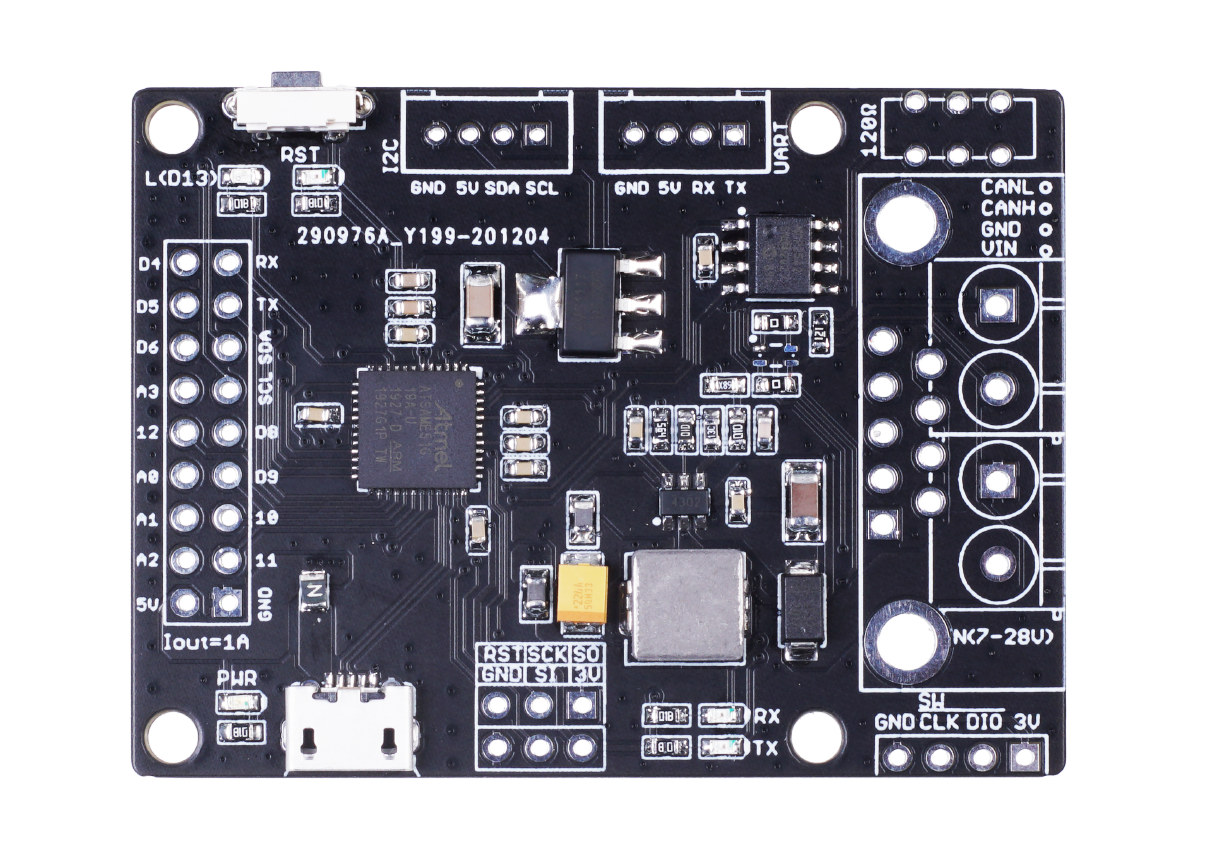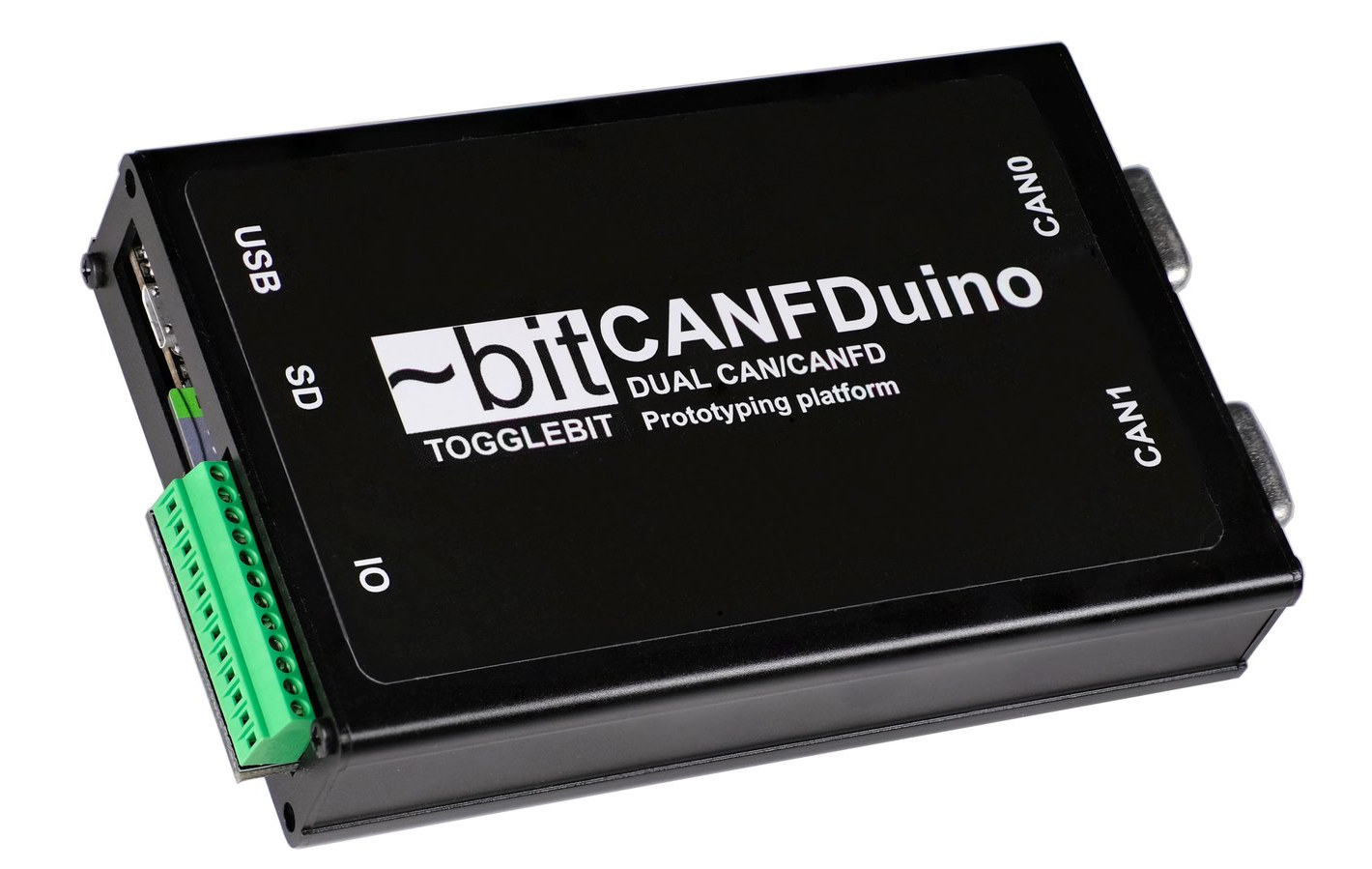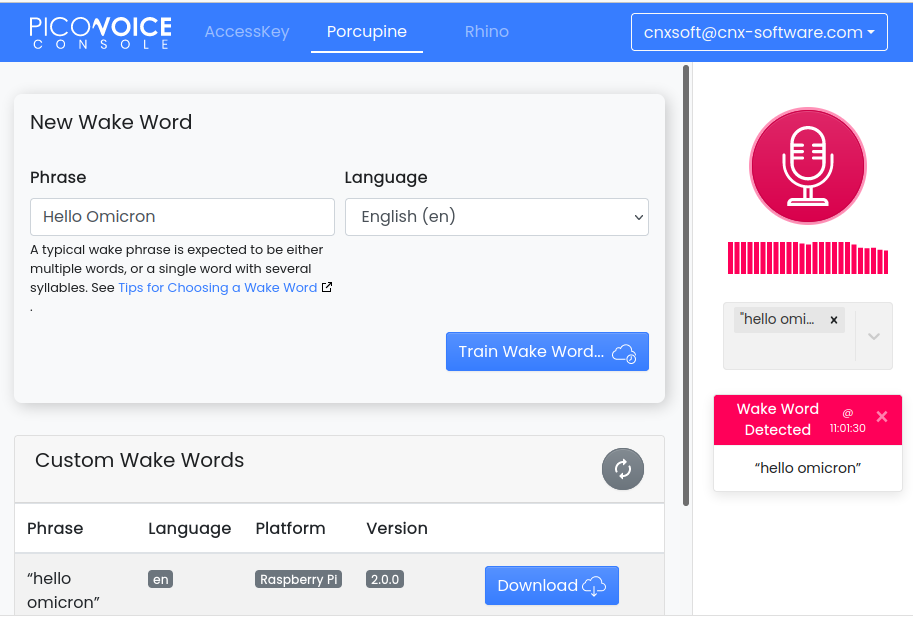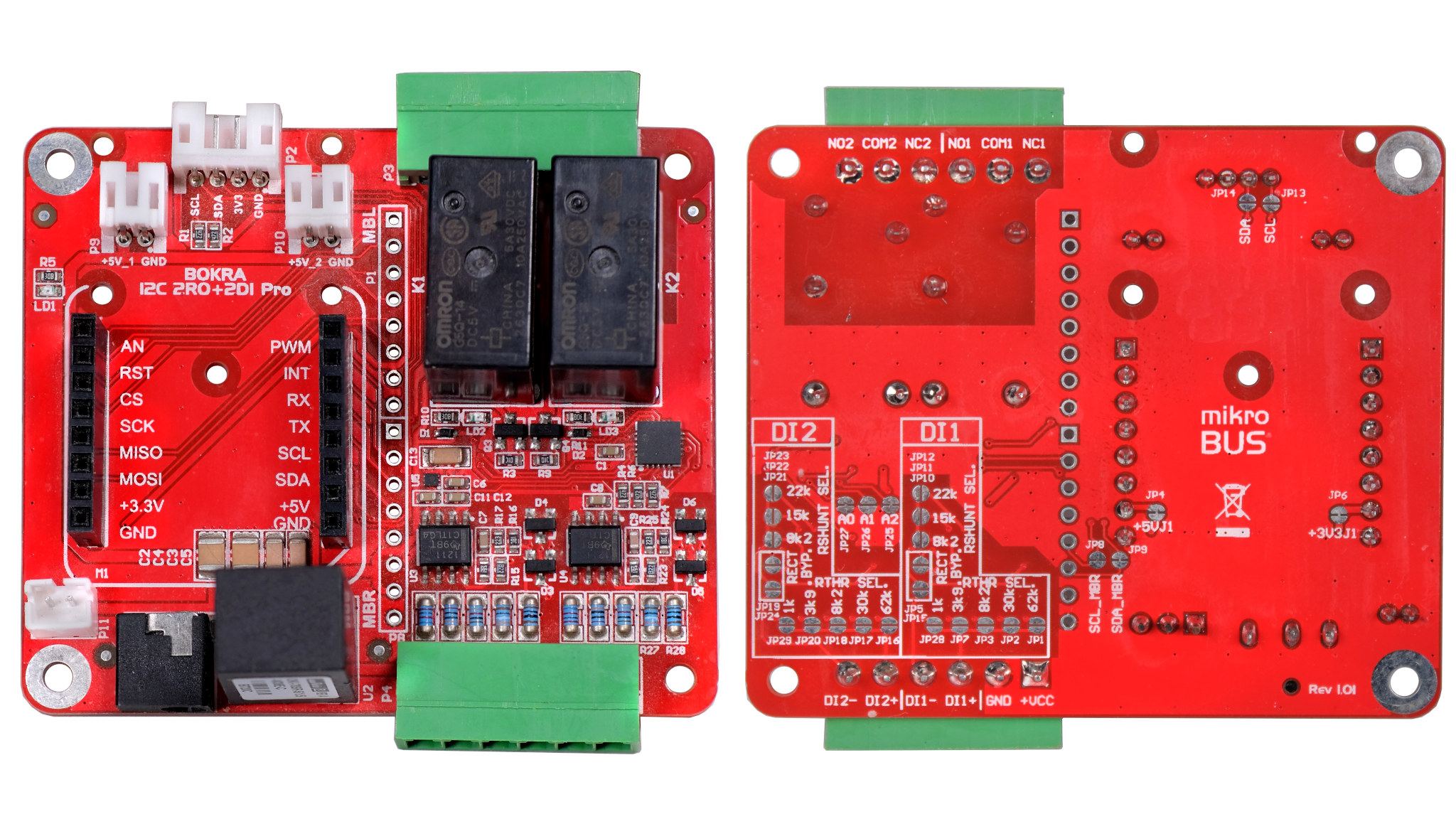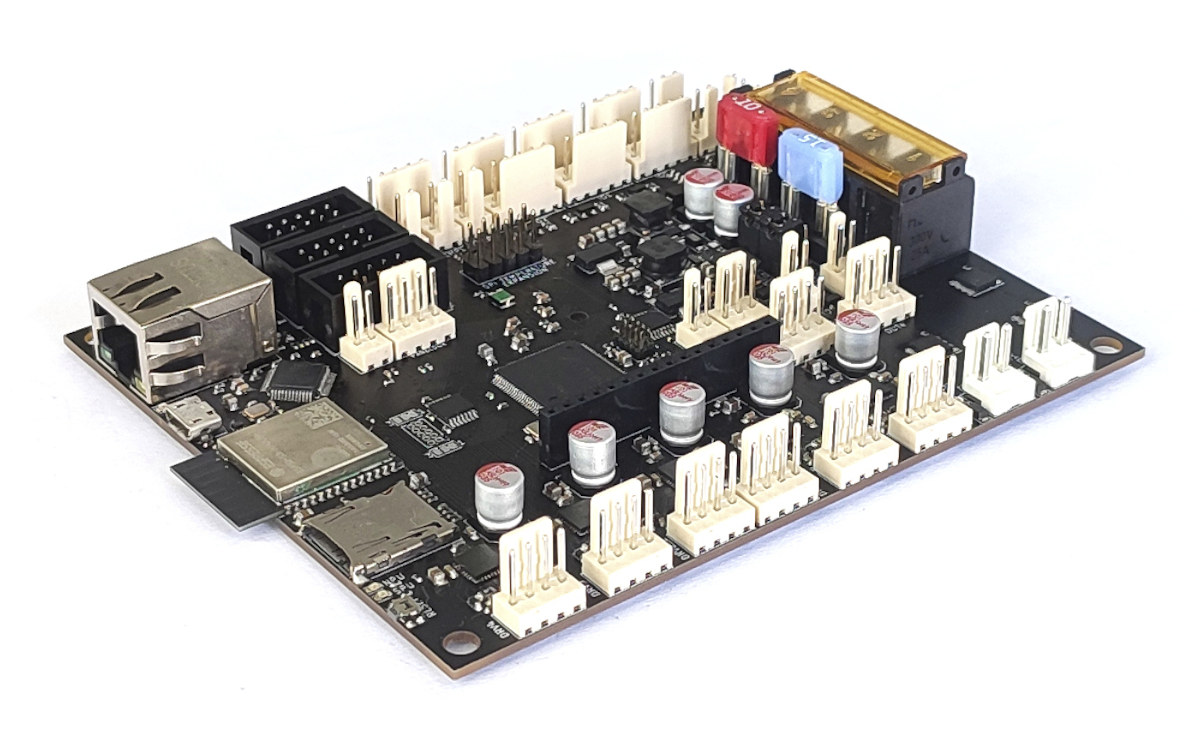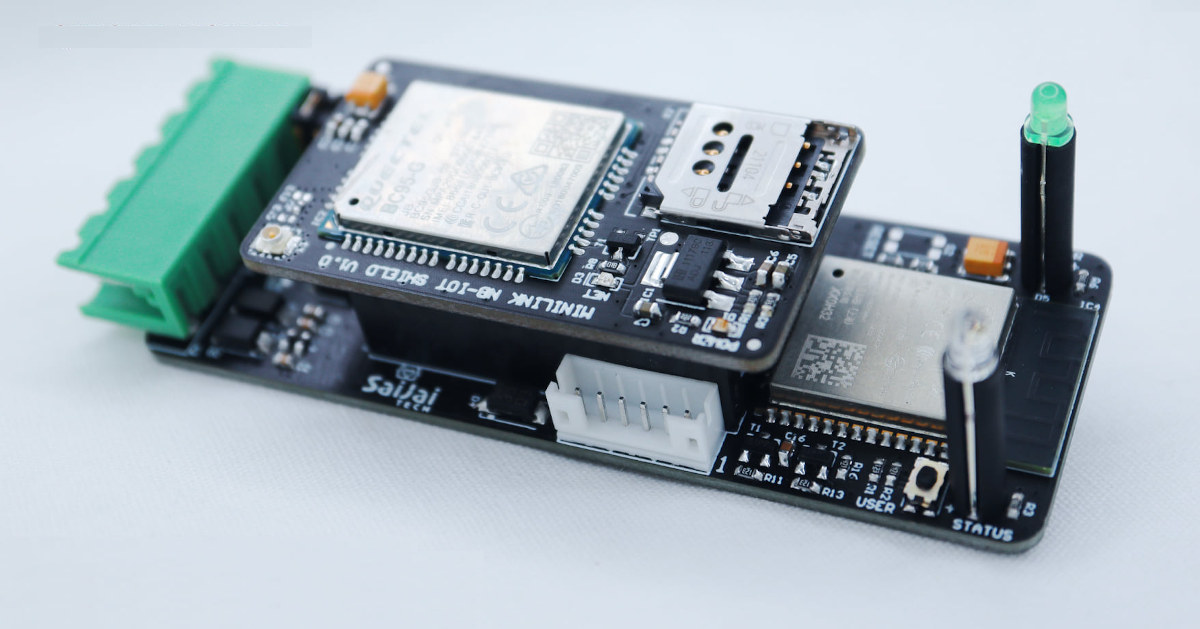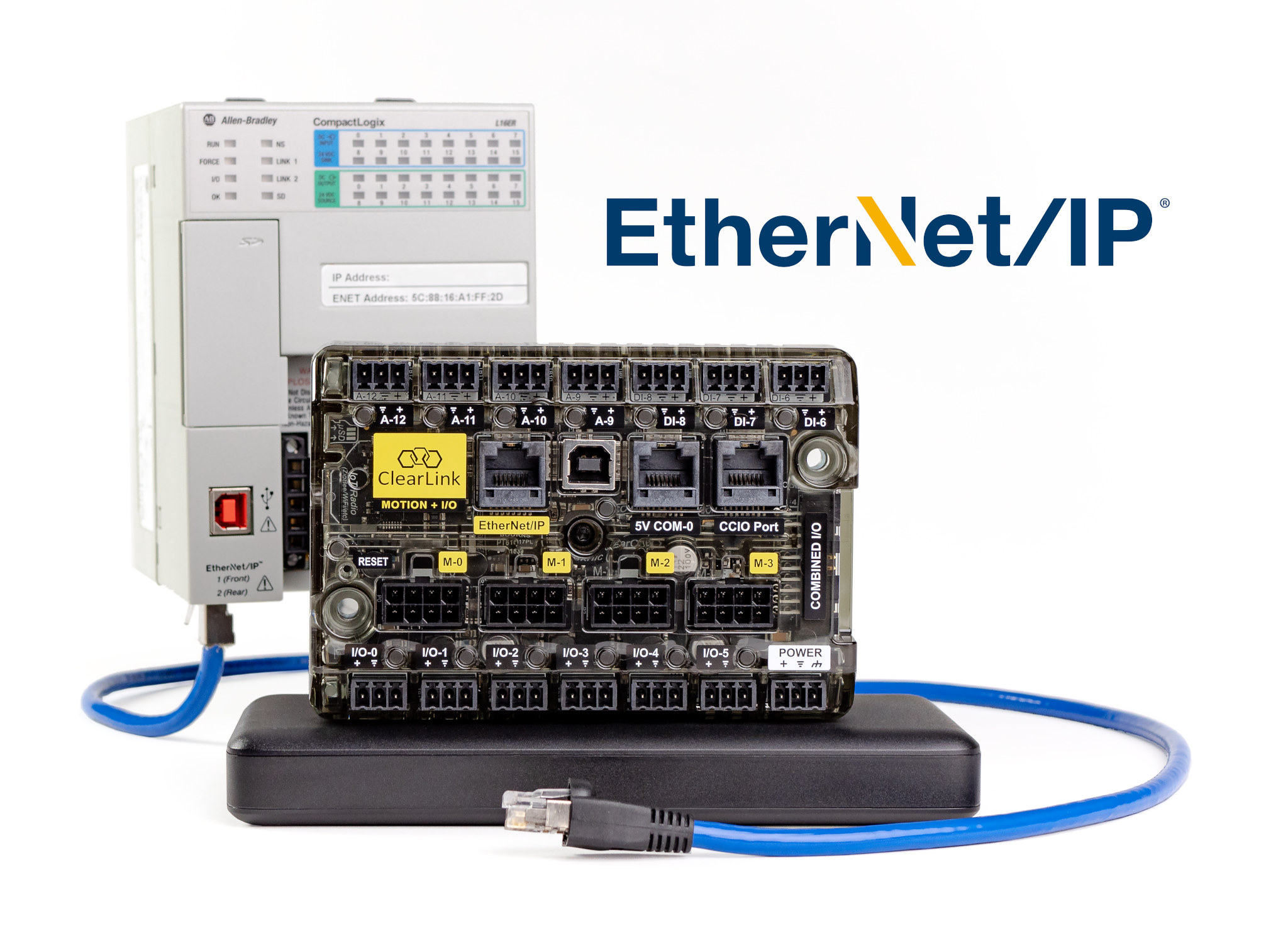CANBed M4 development board based on Microchip SAM E51 Cortex-M4 microcontroller and MCP2542FD CAN transceiver provides a more powerful alternative to the CANBed RP2040 with a Raspberry Pi dual-core Cortex-M0+ microcontroller introduced last year. The board supports both CAN 2.0 and CAN FD with a 4-pin terminal block or a DB-9 connector, and offers expansion capabilities though two Grove connectors, and an 18-pin IO header. CANBed M4 specifications: MCU – Microchip ATSAME51G19A Arm Cortex M4 core @ up to 120 MHz with 512KB flash, 192KB RAM CAN Microchip MCP2542FD CAN transceiver with support for CAN 2.0 and CAN FD up to 2+ Mbps Input interface – DB-9 connector or terminal block 120 Ohm terminal resistor USB – 1x Micro USB port for programming Expansion I2C Grove connector UART Grove connector SPI header 18-pin I/O header with up to 12x GPIOs, UART, I2C, 4x analog inputs, 5V, and GND Misc – […]
CANFDuino – A Dual CAN Arduino based platform with enclosure, proto area (Crowdfunding)
CANFDuino is an Arduino-compatible dual CAN bus platform with CAN FD support that can be used for both prototyping and deployment on the field thanks to its rugged aluminum enclosure, two DB9 CAN connectors, an IO terminal block. The board is powered by a Microchip SAMC21G18A microcontroller with CAN-FD support, a MicroSD card slot, a micro USB port, various analog and digital I/O, as well as a prototyping area allowing users to solder their own components to the board if needed. CANFDuino specifications: MCU – Microchip SAMC21G18A Arm Cortex-M0+ microcontroller @ up to 64 MHz with 32KB SRAM, 256KB flash Storage – MicroSD card slot I/Os 2x DB9 connectors with CAN/CAN-FD up to 5 Mbps 12-way screw terminal block IO Through holes with 10x analog inputs Up to 24 digital IO w/14x PWM 2x UART (+1 UART2USB) 1x I2C,1x SPI 3.3V and 5V supplies Prototyping area for soldering extra […]
The Eclipse Oniro Project aims to deliver consumer & IoT software that works across multiple platforms
Several of the embedded talks at FOSDEM 2022 mention the “Eclipse Oniro Project”. I had never heard about that project from the Eclipse Foundation, so let’s see how they describe it: Oniro is an Eclipse Foundation project focused on the development of a distributed open source operating system for consumer devices, regardless of the brand, model, make. Oniro is a compatible implementation for the global market of OpenHarmony, an open source operating system specified and hosted by the OpenAtom Foundation. Designed with modularity in mind, Oniro offers greater levels of flexibility and application portability across the broad spectrum of consumer and IoT devices — from tiny embedded sensors and actuators, to feature rich smart appliances and mobile companions. As a distributed and reusable collection of open source building blocks, Oniro enables compatibility with other open source technologies and ecosystems. Through close collaboration with projects and foundations such as OpenHarmony from […]
PicoVoice offline Voice AI engine gets free tier for up to 3 users
PicoVoice offline Voice AI engine has now a free tier that allows people to create custom wake words and voice commands easily for up to three users on any hardware including Raspberry Pi and Arduino boards. I first learned about PicoVoice about a year ago when the offline voice AI engine was showcased on a Raspberry Pi fitted with ReSpeaker 4-mic array to showcase the company’s Porcupine custom wake word engine, and Rhino Speech-to-Intent engine. The demo would support 9 wake words with Alexa, Bumblebee, Computer, Hey Google, Hey Siri, Jarvis, Picovoice, Porcupine, and Terminator. More importantly, the solution allows you to easily create your own custom words in minutes from a web interface by simply typing the selected wake word, with no need for hundreds of voice samples or waiting weeks to get it done. So I tried “Hey You” first, but I was told it was too short, […]
IoThing Digital IO board handles up to 300V for Arduino, Raspberry Pi, and various other boards (Crowdfunding)
AlterStep’s IoThing Digital is a digital I/O module with two high-power Omron G5Q-14 relays and two isolated AC or DC input channels based on Texas Instruments ISO1211 that can handle up to 300 V. The board also integrates a DC-DC converter and mikroBUS slot that allows it to be used with compatible MCU boards, and the company also provides adapters for popular form factors such as Arduino, Raspberry Pi, Adafruit Feather, Teensy, and others. IoThing Digital specifications: mikroBUS socket for mikroElektronika Click expansion boards BOKRA Lite MCU boards (Some details below) 2x Omron G5Q-14 SPDT relays – 3A/30V DC or 3A/250VAC via terminal blocks Terminal block for 2x digital outputs configurable from 9V to 300V, DC and AC PCF8574 8-bit I/O expander chip with I²C bus for relay control and digital signal input I2C interface with support for 100 KHz and 400 KHz, address selection via jumpers Grove I2C connector […]
3D printer controller combines ESP32-S3 & Microchip SAME51 microcontrollers (Crowdfunding)
Here’s another ESP32 3D printer controller board with the Phi MainBoard 5LC powered by both an ESP32-S3-WROOM module and a Microchip SAME51 Cortex-M4F microcontroller, and providing Ethernet and WiFi connectivity. Designed by Likha Labs from the Philippines, Phi MainBoard 5LC is pre-loaded with RepRapFirmware firmware running the Duet Web Control interface that allows users to upload G-code files, configure settings, start jobs, control the device, and monitor prints. Besides 3D printers, the developers explain the board can also be used to drive other digital-fabrication equipment, such as CNC machines. Phi MainBoard 5LC 3D printer controller specifications: MCU Espressif Systems ESP32-S3 dual-core Xtensa LX7 WiFi and Bluetooth microcontroller @ 240 MHz with 512 KB SRAM, 8 MB SPI flash via ESP32-S3-WROOM-1-N8 module Microchip ATSAME51N19A Cortex-M4F microcontroller @ 120 MHz with 512 KB flash, 192KB SRAM Storage – MicroSD card socket Connectivity 10/100M Ethernet 802.11b/g/n 2.4 GHz Wi-Fi 4 Bluetooth 5.0 LE […]
MiniLink IIoT Node – An Arduino compatible RS485 to LoRaWAN node with wireless expansion
Designed by Thailand-based Saijai Tech, MiniLink IIoT Node is an Arduino compatible board based on either an ESP32 WiFi & Bluetooth SoC or an unnamed Microchip Cortex-M0+ microcontroller designed for Smart Agriculture or industrial applications (e.g. PLC controllers). The board includes an RS485 interface for sensors or actuators, an ACER-branded LoRa module, and expansion headers to add an extra wireless module with either LoRa PtP (P2P, Point-to-Point), NB-IoT, or 3G/4G LTE & GNSS, and some of those add an extra RS485 port. MiniLink IIoT node key features & specifications: MCU (one or the other) Espressif ESP32 dual-core processor with 2.4 GHz WiFi and Bluetooth LE Microchip Arm Cortex-M0+ microcontroller (probably SAMD21) LPWAN – ACER AS923 LoRaWAN module Sensor interface – RS485 or UART via terminal block (jumper selectable) Expansion – 2x 14-pin header for expansion modules Misc – User & reset buttons, RS485/UART selection jumpers, user and power LEDs, USB/TTL […]
ClearLink EtherNet/IP motion and I/O controller supports 4 axes of motion control
A few weeks ago, we wrote about ClearCore Arduino compatible industrial I/O and motion controller that can be programmed with the Arduino IDE or a C/C++ SDK. Teknic has now announced ClearLink with basically the same hardware, but instead of being programmable in C++, the controller is managed over the EtherNet/IP protocol. ClearLink key features and specifications: MCU – Microchip SAME53 Arm Cortex-M4F microcontroller clocked at up to 120 MHz, with 512 KB flash, 192 KB of SRAM Storage – MicroSD card slot Connectivity 1x 10/100M Fast Ethernet RJ45 port compatible with EtherNet/IP Support for Xbee modules for wireless communication (WiFi, Bluetooth, ZigBee, DigiMesh, 802.15.4, etc.) I/Os 2x RJ45 serial ports for SPI or UART devices (5V output) 13x 3-pin terminal blocks with software configurable I/O, power, and ground Digital outputs can drive resistive or inductive loads up to 9 watts such as contactors, pneumatic or liquid valves, guard locks, […]


